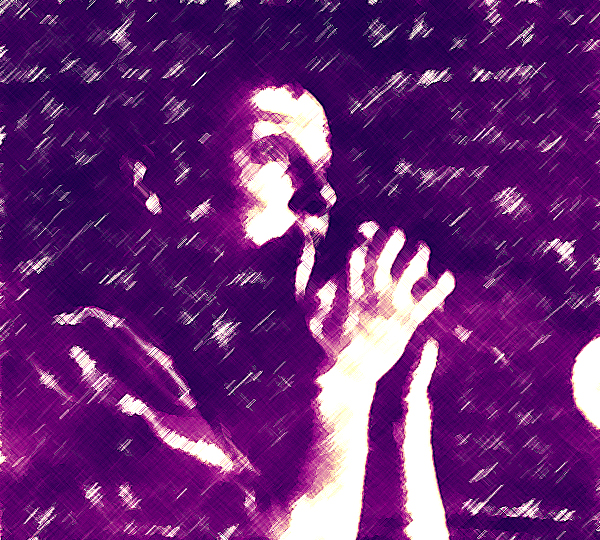
|
Search JoyZine with Google Site Search! |
Howard DeVoto Interview by Kevin Hardiman
What does the man who has been the driving force behind not one, but two, of the most influential and widely respected groups in recent British popular music do next? That is the question that faced Howard DeVoto in the spring of 1981, when, four and a bit years after walking out on The Buzzcocks, he pulled the plug on his next group, Magazine. The talented musicians in the groups were always overshadowed by him. Looking like some unholy cross between Peter Lorre and Joseph Goebbels, Howard DeVoto seemed like a man possessed onstage, often perching on his mike stand in seeming defiance of gravity while singing such songs of isolation and betrayal as "Feed the Enemy," "Permafrost," and "Shot by Both Sides." When Magazine split, all eyes fell on DeVoto. What would he do next, no longer confined by a rock band? For more than a year, the answer was "nothing." "I dis sap pea red... dematerialized... slipped between the cracks of some awkward furniture," De Voto said prior to his solo concert at Worlfgang's. "I simply didn't want to be seen or heard of. I considered working with a female singer, a surrogate who could deal with the up front stuff. I had ideas but it simply never dame together. And as I'd accumulated some songs I had to get rid of, I recorded an LP." Jerky Versions of the Dream, DeVoto's solo debut, is not his first recorded work since leaving Magazine; he contributed to an LP by Bernard Saner, a Polish-French composer of avant-garde music. But Jerky Versions clearly picks up where Magazine left off. In fact, Dave Formula is present on keyboards, and at least one of the songs dates back to the time of Secondhand Daylight, Magazine's 1979 album. But Jerky Versions isn't Magazine. "I purposefully avoided some of the atmosphere and air of Magazine—what I call the worried end of things." DeVoto says his next project will be a further departure. "This record had a similar approach to Magazine. I plan to record new elements of sound." He declined to elaborate, though he does plan to keep using the same musicians, (Formula, guitarist Allan St. Clair, bassist Martin Heath, and drummer Pat Ahern.) As for the other members of Magazine, McGeoch and drummer John Doyle are in a band called Armory Show; while Adamson is working with Peter Shelley, DeVoto's original partner in the Buzzcocks. "We (the Buzzcocks) did about 10 gigs, a couple with the Sex Pistols, back in 1976 when the word 'punk' wasn't yet used. After we recorded the Spiral Scratch EP, I felt I'd done all I wanted to with them. Magazine obviously occupies a much greater proportion of importance to me." DeVoto says his first musical ambition, even as a child, was to select the music for films and television, and he'd still like to record soundtracks sometime. This interest does not carry over to the current rock video boom, however, "I look at videos with a fair degree of distaste," he says. "It's essentially a trash medium, I've done a video for "Rainy Season" (his recent single) "but I'm not terribly happy with it. I worked hard to wring out something I would like. It has to be dealt with... people seem to want to watch them. I don't like what it's doing to music, and I don't like having one stream of images as if 'this is the song.' My songs deal with ambiguity and doubt, shadow and shade. But it has to be contended with." Howard DeVoto seems at a crossroads now. Never complacent, he obviously wants to move beyond Magazine, yet his show at Wolfgang's featured a generous number of their songs, and he spoke of Magazine as "more personal" than his current work. Whatever direction he takes next, even if it's none at all, he's certain to command attention. |
